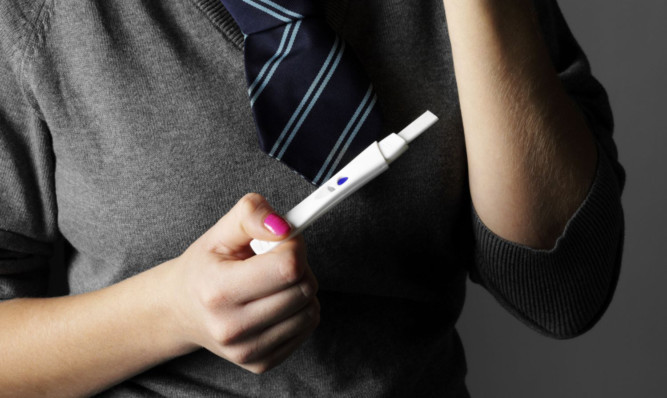Teenage pregnancy rates in Scotland have fallen to their lowest ever level, new figures have revealed.
But the number of young women who become mothers is still much higher in deprived areas – with 1,507 under-20s in the poorest communities having a baby in 2013 compared to just 131 in the most affluent areas.
Across Scotland, 3,462 females aged 19 and under gave birth in 2013 while a further 2,345 terminated a pregnancy – giving an overall teenage pregnancy rate of 37.7% per 1,000 population.
That is a drop of almost 35% from 2007, when the rate was 57.7% per 1,000.
Meanwhile, the pregnancy rate for girls under 16 has fallen by almost 40%, down from 7.8% per 1,000 in 2007 to 4.7% per 1,000 in 2013.
But the latest figures show teenage girls in the most deprived parts of Scotland are 4.8 times more likely to become pregnant than those in the most affluent areas, and 12 times more likely to have a baby.
As well as the 1,507 under-20s in the poorest areas who had a baby, the figures for 2013 show 633 had an abortion, almost double the 321 terminations carried out in this age group in the least deprived communities.
The figures include 166 girls under the age of 16 in the most deprived communities who had a baby, as well as 231 abortions which were carried out.
In comparison, in the least deprived communities 12 girls under the age of 16 had a baby and 27 pregnancies were terminated.
Public Health Minister Maureen Watt said: “I am pleased to see the rate of teenage pregnancy has continued to reduce for the sixth year, which is very encouraging alongside recent reductions in terminations of pregnancy.”
She said reducing the number of teenage girls who become pregnant would “help to increase the choices, opportunities and wellbeing available to them throughout their live”.
Ms Watt stressed: “Teenage pregnancy rates have been decreasing under this Government, but we are determined to further decrease those rates and to close the inequality gap. I am disappointed that significant differences remain between those from deprived populations compared to more affluent populations.”
She added that a new draft strategy from the Scottish Government seeks to build on progress made in recent years, with the minister saying: “We have engaged with key stakeholders and young people throughout its development and we will continue to engage with them throughout this consultation process to ensure we give young people in Scotland the best start into adulthood.”
She continued: “The draft strategy emphasises the need for a holistic approach to tackling pregnancy in young people by considering wider factors that are key for supporting young people more widely, such as education, attainment and training and employment.
“It is essential that we continue to put the young person at the centre to help them achieve their potential both as individuals and where appropriate, as parents.”
